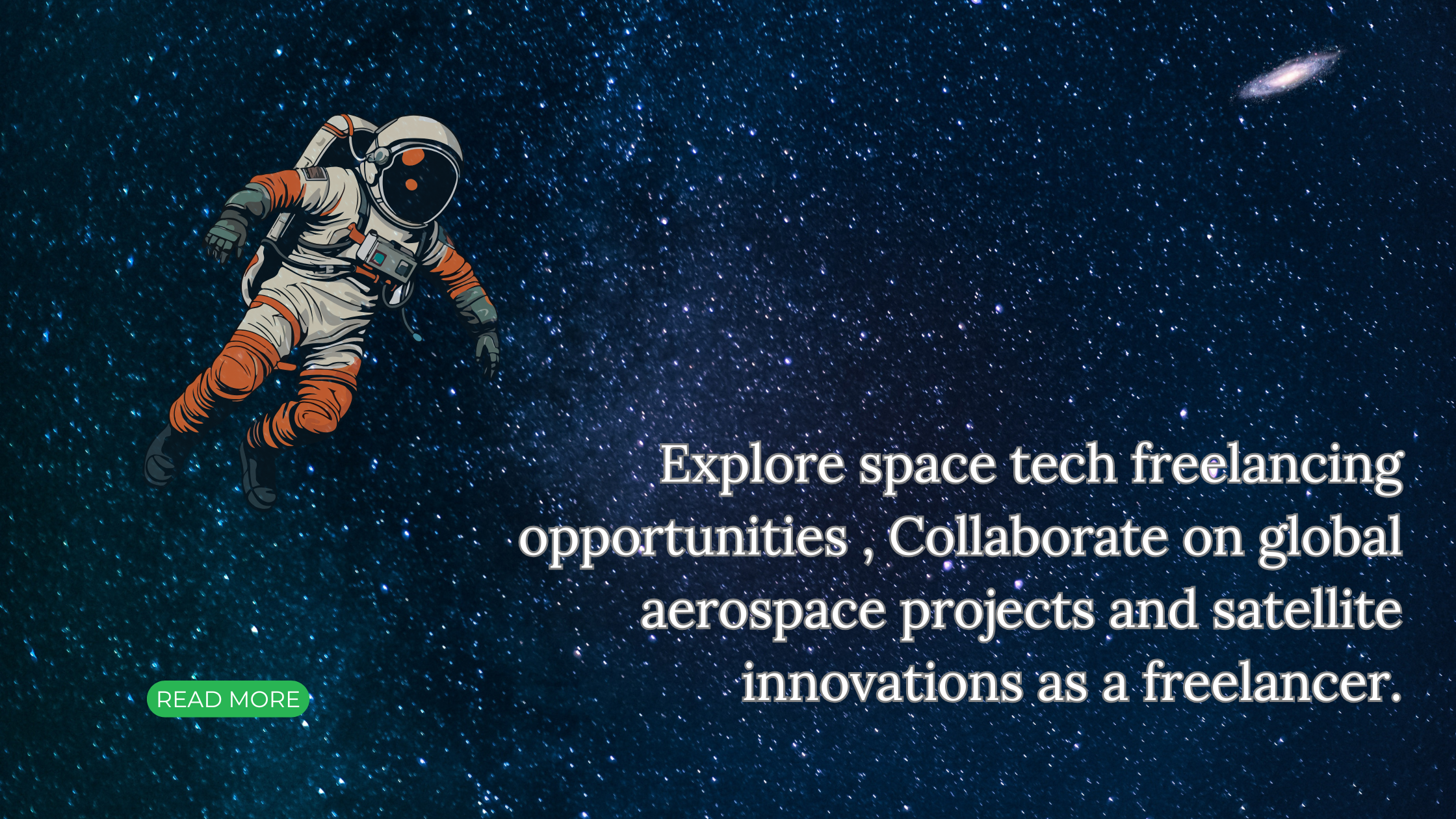“In 2025, a Explore space tech freelancing opportunities in 2025. Collaborate on global aerospace projects and satellite innovations as a freelancer.freelance data scientist in Mumbai optimized satellite trajectories for a lunar mining startup—earning $75,000 while working from her rooftop. The space industry isn’t just for astronauts anymore; it’s the next frontier for freelancers.”
1. The New Space Race: Freelancers Fueling Cosmic Innovation
By 2025, the global space economy will surpass $1 trillion (Morgan Stanley), with freelancers contributing to 25% of private sector projects. Drivers include:
Democratized Access: Startups like OrbitWeave crowdsource freelancers for affordable satellite deployment.
AI-Driven Automation: Freelancers train AI models to analyze asteroid composition or predict space weather.
Global Collaboration: Engineers in Argentina debug code for Japanese lunar rovers in real-time.
Case Study: A freelance robotics designer in Poland built a low-cost Mars soil sampler for a NASA-funded startup, cutting project costs by 60%.
2. Skills Needed to Thrive in Space Tech Freelancing
Orbital Mechanics Basics: Calculate launch windows and fuel efficiency using tools like GMAT.
Remote Sensing Expertise: Process satellite space tech imagery for climate monitoring or urban planning.
3D Printing for Zero-G: Design lightweight, durable parts for spacecraft.
Regulatory Navigation: Understand ITAR and FCC compliance for international projects.
2025 Trend: Certifications like SpaceTech Pro (offered by Coursera) are now prerequisites for high-value gigs.
3. Tools Shaping Space Freelance Work
CelestialKit: Open-source software for simulating space missions.
StarLink DevSuite: Test satellite communication protocols in virtual environments.
AstroMarket: Freelance platform matching engineers space tech with startups like SpaceX spin-offs.
ExoDAO: Decentralized space project boards with crypto-based payments.
Pro Tip: Use SpaceCollab to join global teams working on megaprojects like space hotel designs.
Satellite Communications:
Optimize 5G/6G networks using low-earth orbit (LEO) satellite data.
Space Tourism:
Design VR training modules for civilian astronauts.
Asteroid Mining:
Develop AI algorithms to identify resource-rich asteroids.
Climate Tech:
Analyze satellite data to track deforestation or methane leaks.
Stat: Freelancers in space agriculture Explore space tech freelancing opportunities in 2025. Collaborate on global aerospace projects and satellite innovations as a freelancer. (e.g., growing plants in microgravity) saw a 200% demand surge (ESA, 2025).
5. Challenges & Solutions
High Entry Barriers: Start with microtasks like debugging satellite firmware.
Security Risks: Use encrypted tools like space tech QuantumVault for sensitive aerospace data.
Physical Limitations: Partner with labs offering remote access to testing facilities.
2025 Innovation: SpaceGig Insurance covers freelancers for project delays caused by cosmic events (e.g., solar flares).
6. The Future of Space Tech Freelancing
Lunar Freelance Hubs: Collaborate on moonbase construction via VR workspaces.
AI Co-Pilots: Tools like GalacticMind auto-generate rocket engine designs.
Ethical Space Law: Freelancers will draft policies for asteroid ownership and space debris management.
Space tech freelancing in 2025 isn’t science fiction—it’s a lucrative, boundary-pushing career path. From designing Mars Explore space tech freelancing opportunities in 2025. Collaborate on global aerospace projects and satellite innovations as a freelancer. habitats to optimizing space tech satellite constellations, freelancers are critical to humanity’s cosmic ambitions.
Your Launch Plan:
Earn a Space Systems Fundamentals certification.
Showcase niche skills (e.g., “zero-G CAD design” or “hyperspectral imaging analysis”).
Join decentralized space collectives to bid on interplanetary projects.
The universe is expanding—and so are your opportunities.
Frequently Asked Questions
Let’s address any doubts or questions you may have
A platform where freelancers and employers connect for projects, internships, and job opportunities.
Sign up as an employer, navigate to the “Post a Project” section, and fill in the required details.
Freelancers can browse projects and submit tailored proposals directly through the platform.
Yes, the platform supports both short-term gigs and long-term contracts.
Freelancers skilled in various fields like design, development, writing, marketing, and virtual assistance.
Employers post internship opportunities, and candidates can apply by submitting their profiles.
Yes, freelancers are verified based on skills, experience, and reviews to ensure quality.
Absolutely, freelancers can collaborate with employers from any location.
Payments are processed securely through the platform, ensuring safety for both parties.
The platform may charge a service fee or commission; details are available in the pricing section.
Employers can review freelancer profiles, portfolios, and client ratings.
Yes, integrated tools for communication, task tracking, and file sharing are available.
Payments are transferred directly to freelancers through secure methods like PayPal or bank transfers.
Yes, recurring projects can be scheduled and managed seamlessly.
A dedicated support team is available to help with account, payment, or project-related queries.


